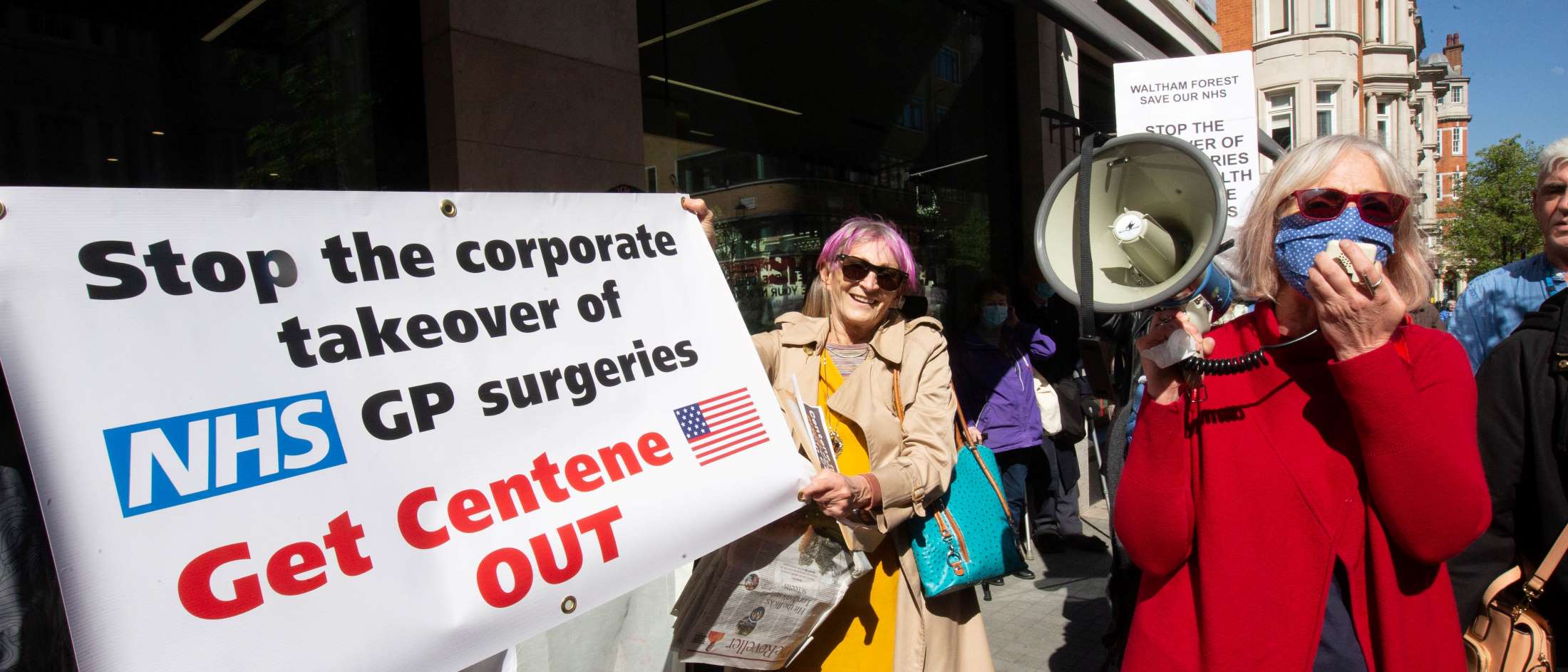NHS – national health scandal
Two years ago, the coalition government, vowing to tackle tax avoidance, introduced new legislation that would bar tax-shy companies from procuring government contracts. Not one company has been stopped from bidding on a contract for this reason since.
Now, Unite research published on Sunday (March 23) shows that the one state service most in need of funding based on healthy tax receipts—the NHS—has become a hotbed of tax avoiding privatisers.
Tax expert Richard Murphy analysed ten private health firms which are now bidding on or running NHS contracts. The analysis revealed that all 10 make use of tax havens or corporate structures explicitly designed to avoid their duty to contribute to the society that enables them to thrive.
Only two of these firms pay any significant tax in the UK at all.
Virgin Care is at the forefront of NHS privatisation—it provides 30 primary care services across England, including GP practices, GP out of hours services, walk-in centres, urgent care centres and minor injury units. According to its website, it runs 230 NHS and social care services in total and employs 5,500 people. Recent contracts the private health provider has won run up to £500m in value.
But despite the hundreds of millions of NHS pounds being poured into a controversial private provider, its parent company, Richard Branson’s Virgin Group Holdings, has not paid any tax on its last reported profits.
And the distance between the private health care provider and its ultimate owning company is gaping—13 intermediate holding companies separate it from Virgin Group, which is based in the British Virgin Islands, a well-known tax haven.
Optum UK, another NHS preferred private provider, is now bidding for a palliative care contract worth £1.2bn. It’s a subsidiary of US-owned United Healthcare, and is currently being investigated in America for fraud. Like Virgin Care, Optum has paid no tax on its reported profits and is linked to tax havens such as the Cayman Islands through its American parent company.
Some of the companies have excused themselves by arguing that, because they are not currently profitable, they cannot pay tax. A Virgin Care spokesperson claimed that they will “…meet those [tax] obligations as and when we reach profitability.”
But Murphy, who helped conduct the research for Unite, argues that a closer look at their company structures indicates these private health firms have little intention of paying up once they are profitable.
“The combination of a current lack of tax payments from many of these companies, coupled with their apparently deliberate use of offshore structures that can only be intended to save tax at some time in the future, suggests a very low commitment on the part of these companies to pay tax in the UK even though tax paid on corporate profits is currently enough to fund about 30% of the National Health Service,” Murphy noted in the analysis.
“What the structure of many of these businesses shows is that tax planning is at the very core of their activities,” he added. “This is the wrong priority for companies working in the state funded NHS where the tax contribution everyone makes, including from those who supply NHS services, is vital to the continuing health of the nation.”
Murphy also noted that two firms, who had been paying small tax amounts over the past three years, both later claimed tax credits, which virtually wiped out all the contributions they had made over that time.
Unite general secretary Len McCluskey called the situation a “national scandal”, condemning the accepted arrangement that enables firms to “bid for cancer treatment contracts while scheming how to siphon their profits out of the country into far flung tax havens.
“Good government should do everything possible to protect taxpayer-funded public services like the NHS from companies with links to tax havens,” he added. “But the Tory government’s warped health and social care act has opened up the door to private companies with dubious tax arrangements.”
Indeed, the health and social care act of 2012 is the Tory-implemented motor that drives the continued privatisation of the NHS – billions of pounds worth of NHS services have fallen into private hands since it passed, with more than half of the total contracts since April 2013 going to non-NHS providers.
The situation will become even more dire if the NHS is not exempted from the controversial EU-US trade deal, the Transatlantic Trade and Investment Partnership (TTIP).
Because many private health firms contracted by the NHS, including seven of the 10 analysed, have US subsidiaries or investors, TTIP may be used as a weapon to prevent the government from blocking future bids or terminating existing contracts.
This will move NHS privatisation from being a worrying Tory-led trend to an irreversibly permanent fixture, one that no one saw coming until it was too late.
 Like
Like Follow
Follow


